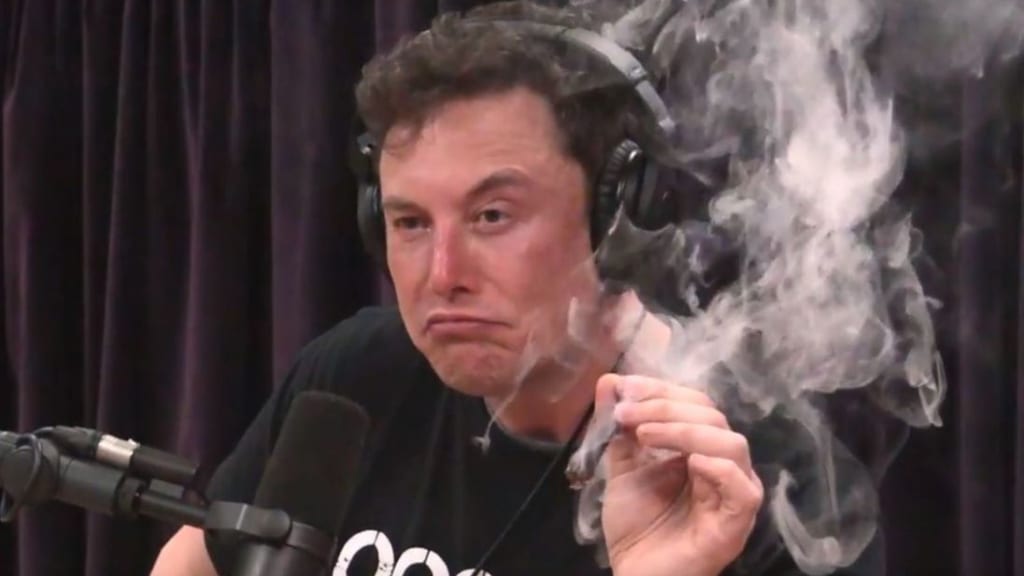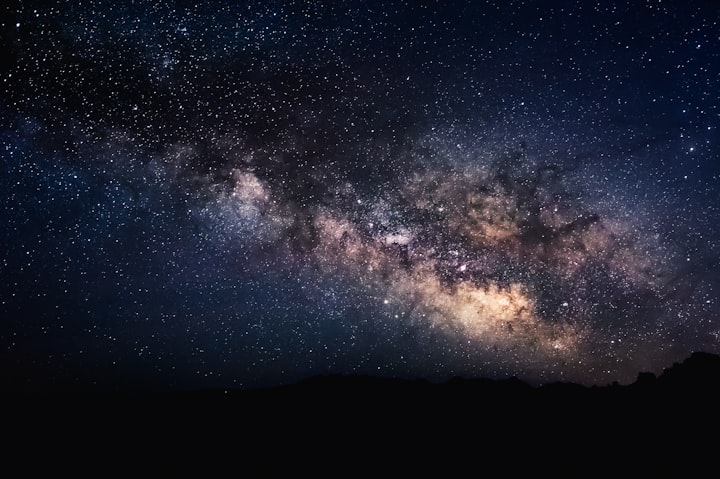Elon Musk is dangerous.
If we don't take action now, Elon Musk could make a future for our children that's worse than the nightmare many are living now.

My upcoming book takes readers to Mars, 867 years into humanities’ future. Why so far ahead you’re wondering? The book involves terraforming Mars, a process that would make the Martian atmosphere suitable for humans, and allow Earth like plants and animals to roam the red planet freely. Terraforming a planet is possible, and we have the technology to do it now, it just takes a really long time. Sadly for us, the time variable of terraforming is unavoidable, regardless of the technology involved. In the book, I look at what would happen to Mars if it was taken over by the intellectual and financial elite. College professors, entrepreneurs, wealthy artisans, scientists, and the exuberant brilliant class. What would happen to a planet if they simply went there, without any real way to stop them, and appointed themselves rulers? What if the very rich (but also very ambitious) became the gatekeepers to an entire world?
At first glance, it would appear like a capitalist utopia. In the book, this is exactly why this particular group fled to Mars in the first place. With the rise of artificial intelligence, it’s likely the majority of working class, (along with many white collar) jobs will simply evaporate. Millions, if not billions of people will be replaced by a piece of software. For the purpose of the story, Earth became a socialist safe haven, as world governments consolidated their power to create a massive welfare state. Most of humanity was retired, and governed by AI software protocols that created little more than a new-age caste system. Innovators wanted to exercise the power of their ingenuity, and compile wealth as they did it, so they fled to Mars.
The idea of the super rich staking out their claim to an entire planet seems like science fiction. I wasn’t all that original with the plot of my new book, unscrupulous capitalists taking over space and its infinite resources is the plot of many great works. However, we are watching this very scenario unfold for Mars, right before our eyes.
Without argument Elon Musk has reimagined space travel. Space X is a brilliant company, and worthy of the title Apple of outer space. Rocket engines were a glaring obstacle to exploring space. They were costly and timely to build, and could only be used once. A giant, enormously expensive piece of disposable hardware, that just happens to be highly flammable as well. The idea of a rocket that can launch itself, propel itself into orbit, and then land itself and fly again THE SAME DAY was unthinkable just a few years ago.
Yet, Elon Musk’s ambitions appear not to follow the ark of exploring space for the betterment of humanity. If those were his ambitions, then Musk’s technology would solely be sold to the public space agency NASA. But that isn’t all that is happening. Musk is planning his own expedition to Mars, and what started as something that was easy to mock a few years ago, is developing into what could be a plausible and very real colonization effort not far down the road. Musk now says he wants to live on Mars, and take 1 million people with him. He has vowed to sell all his Earthly possessions in preparation for a life on Mars. It sounds almost like the ramblings of a cult leader, and would be laughable if Musk wasn’t the richest man alive, with a company that is producing the most innovative space travel technology ever.
Stop and think about this for a moment. One man, a mega-billionaire, an eccentric genius that has innovated his way into unbelievable wealth wants to hand pick 1 million people and colonize a planet. If that doesn’t sound like science fiction, I don’t know what does. After we get over the coolness factor of watching a former sci-fi plot materialize into reality, we have to ask ourselves, what does that mean? Should one person, with untold wealth and influence have the right to take over an entire planet? How could we as a country and world ever have prepared for such a notion?
Could Musk really colonize and be a dominant force in controlling the future of Mars? In the film The Martian, Matt Damon’s character jokes that Mars is controlled by maritime law, making him the first space pirate. That’s not entirely true. Maritime law derived from the United Nations Convention of Land and Sea, developed in 1982. Maritime law specifically deals with the sea, and has no conventions in outer space. However, that same governing treaty states that space and all its celestial bodies are “res communis” meaning belonging to the community of mankind. There is also the Law of Outer Space, and specifically the Moon Agreement, an international basis for how we govern the use of celestial bodies.
While this provides some framework and restriction for the use and governance of celestial bodies, it’s quite limited. Were Musk to make good on his promise of leading a mass colonization effort to Mars, it’s quite possible he could petition for a new Mars Agreement, which specifically seeks to establish new principles about what takes place on Mars. A few things we can assume. If say in 30 years there is a human “colony” on Mars, open to people moving to and staking their claim on the red planet, it will take untold wealth to get there. Space tourism, another area Musk is interested in exploring, assumes the cost of a trip into low Earth orbit could exceed $ 250,000.00. By that measure, making the trip to Mars could easily cost 4-5 million dollars, way outside the price range of even exuberantly wealthy humans. So by and large, by Musk’s model, only the very rich will have a chance to escape Earth and live on Mars.
And, what would that mean for Earth. If suddenly the very rich (who like it or not, are THE MOST responsible for climate change) saw no reason to mitigate their usage of Earth’s resources, as whenever they wanted, they could simply start anew on the red planet. What if the company a working class person was employed by, was owned and directed by someone who lived on an entirely different planet, who had little care or concern for the plight of people back on Earth. The amount of exploitation that could occur for those people left on Earth would be immeasurable. Political bodies could simply be bought off with a ticket to Mars, where they could escape the growing level of crisis bubbling up all around their home planet.
Imagine if Mars gets its start as a human colonized planet, largely controlled by a man who is implanting chips in monkey’s brains so they can play pong telepathically. It was exactly this scenario that prompted many to be against privatized space travel in the first place. Long before Space X had its maiden voyage, they argued that if space travel left the public sector, it was inevitable that greedy, profit motive driven capitalists would cease space exploration for themselves, and thus rob the people of the many benefits of space travel. Much of the technology we love today was born amid the space race, which was a publically funded endeavor, and thus the public shared in the spoils of technical innovation it produced. Space X is something very different, as Musk can simply patent his discoveries and sell them to the highest bidder, the common good be damned.
It’s hard to imagine a future that is bleaker than the world we live in right now. A world where unarmed civilians are gunned down by the people supposed to protect them, a world of grotesque inequality and a world where even in the wealthiest nation on Earth, millions have little to no access to quality healthcare. Yet, if world governments don’t grab this bull by the horns now, they risk exactly that, a future for our forebearers bleaker than the cesspool of morality we inhabit now. A future that looks more like the film Elysium, and less like the nordic nations where quality of life is at its peak. If we allow Elon Musk, or any innovative billionaire to start selling off access to human discovery, and the secrets of our solar system, while capitalising an entire planet for profit, we are building a future unworthy of our children, and their children.
Step one would be to ensure a healthy partnership between public and private space travel, one where the private side cannot overpower and overtake the public side. There should be rules and restrictions on what can be put into outer space. An example is Musk’s own star link satellites. Musk hopes to blanket the entire world with high speed internet, a noble and important pursuit. However, in order to do so, he is filling our skyline with his satellites. Already, argument has ensued because Star Link satellites obscure the view of various celestial bodies at various areas worldwide, a fact which has angered both professional and ameatuer astronomers. And it’s not like Star Link is a free service that will ensure poor, rural, and struggling communities have internet access. Star Link is a capitalist venture, which will sell internet service to THOSE WHO CAN AFFORD IT. Again, the public good be damned.
Private satellites aren’t something new, as broadcast corporations and service providers have owned satellites for decades. However, they’ve never owned near the scope and scale of satellites Musk is launching, and it isn’t Comcast owned spaceships launching Comcast satellites into space. Historically, private corporations relied on a partnership with public space agencies to put their satellites into orbit, and that partnership meant that at least a modicum of common good was required, otherwise no launch. Musk has circumvented that by simply making his own spaceships, and his own satellites. Space X has been allowed to run at full steam ahead, and like Ian Malcolm suggested in Jurassic Park, everybody was so intrigued as to whether they could, they didn't stop to ask if they should.
Ironically, it’s Elon Musk that feels some sort of public regulation and oversight should be placed on artificial intelligence technology. His fear, AI technology will realize its own potential, individual nature, and power. It might then seize the wealth and technology of people like Elon Musk, and decide to destroy humanity, or perhaps redistribute it among the masses. Either way, it would be a horrible day to be a billionaire.
So, it’s curious that Musk seeks oversight on technologies he thinks could put a stop to his innovation, but not technologies that could protect the public from overzealous capitalists.
In my upcoming book, Mars is planned as a waystation for all of humanity while the damage to Earth’s climate is repaired, until a charismatic and dangerous charlatan takes control of the red planet and declares it independent of Earth. At first glance, this new Mars is a place brimming with innovation and brilliance, but under the surface lies something sinister. It’s much like our over-capitalized version of America. Thanks to for-profit health care, we have the most innovative and effective biomedical industry in the world, but we also have millions of our own people who have zero access to health care because they cannot afford it.
If space is really “res communis” then maybe it’s time the community decides how we go about exploring and colonizing it. Not to specifically tear apart Elon Musk, he’s brilliant, which is exactly why he is so dangerous.






Comments
There are no comments for this story
Be the first to respond and start the conversation.